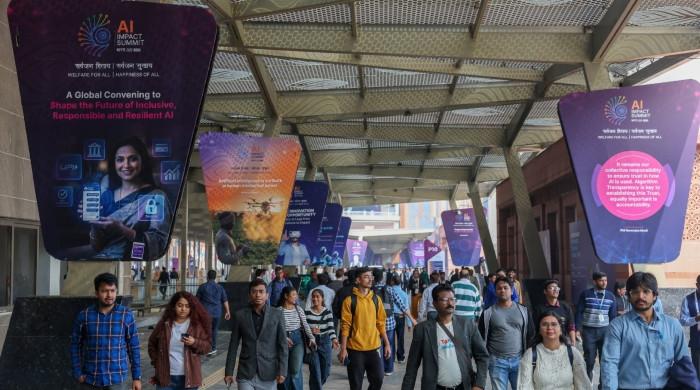Scammer steals millions from businessman using deepfake technology
Con artist masquerades as friend of businessman with the help of an AI-powered face swapping tool
May 24, 2023

China witnessed one of the most worrisome frauds when a scammer stole millions of yuans from a businessman by using Artificial Intelligence (AI) to pose as a friend.
As per a report by French wire agency AFP, the con artist masqueraded as friend of the victim, surnamed Guo, with the help of an AI powered face-swapping tool.
Guo said it was last month when he received a video call from a person who looked and sounded like a close friend.
The fraudster convinced Guo to transfer 4.3 million yuan ($609,000) saying that another friend needed the money to make a bidding deposit. He asked for Guo's personal bank account number and sent a fake screenshot of a fraudulent payment record to prove that an equivalent sum had been wired to the sender's account.
Without checking that he had received the money, Guo sent two payments from his company account totalling the amount requested.
"At the time, I verified the face and voice of the person video-calling me, so I let down my guard," Guo told the Chinese publication cited by AFP.
He only realised that he had been duped after his friend — the real one — said he was unaware of the matter. However, the police said they had recovered most of the stolen funds and were working to trace the rest.
The potential pitfalls of groundbreaking AI technology have received heightened attention since US-based company OpenAI in November launched ChatGPT, a chatbot that mimics human speech.
China has announced ambitious plans to become a global AI leader by 2030, and a slew of tech firms including Alibaba, JD.com, NetEase and TikTok parent ByteDance have rushed to develop similar products.
ChatGPT is unavailable in China, but the American software is acquiring a base of Chinese users who use virtual private networks to gain access to it for writing essays and cramming for exams.
But it is also being used for more nefarious purposes.
This month police in the northwestern province of Gansu said "coercive measures" had been taken against a man who used ChatGPT to create a fake news article about a deadly bus crash that was spread widely on social media.
A law regulating deepfakes, which came into effect in January, bans the use of the technology to produce, publish or transmit false news.
And a draft law proposed last month by Beijing´s internet regulator would require all new AI products to undergo a "security assessment" before being released to the public.
Additional input from Reuters











